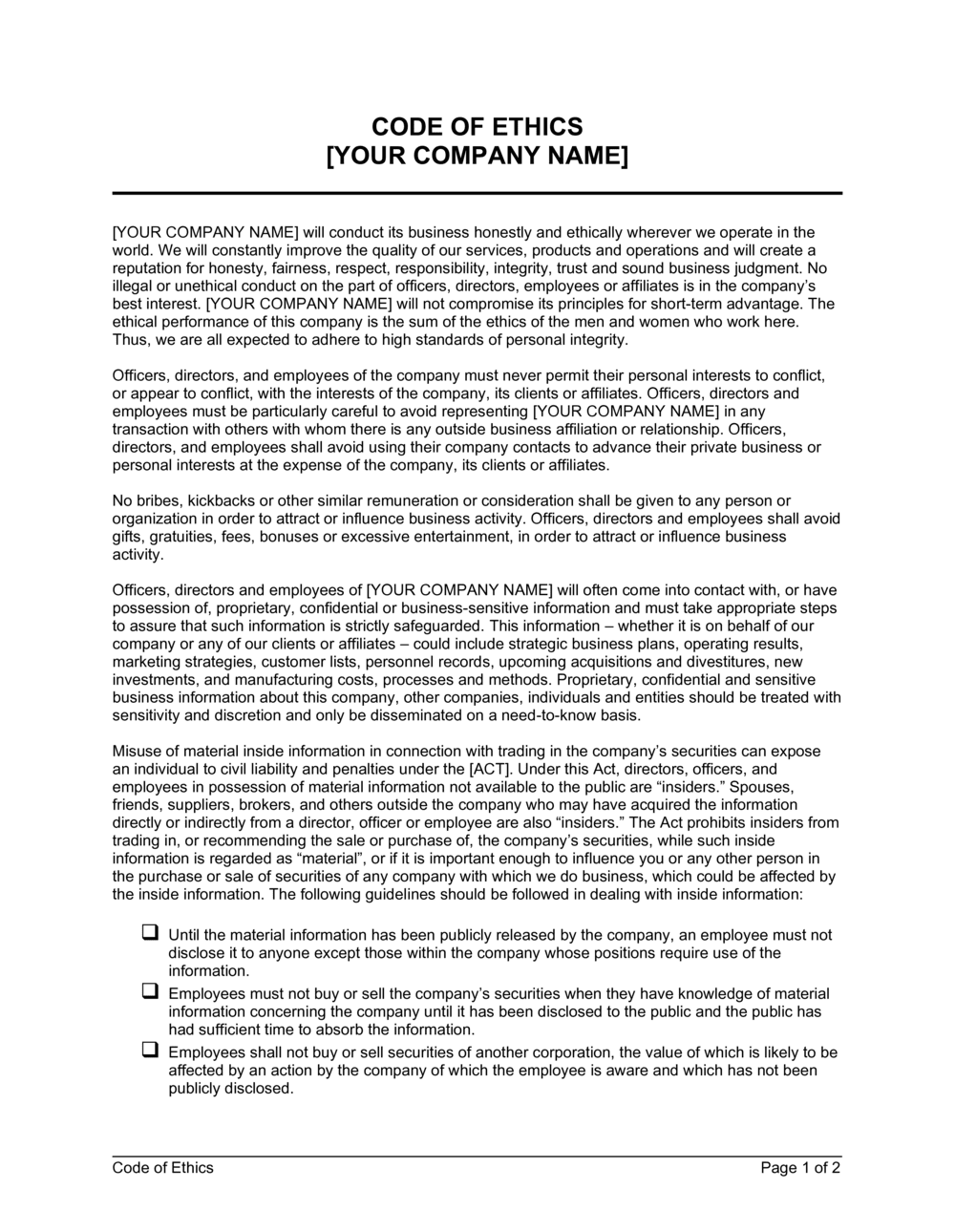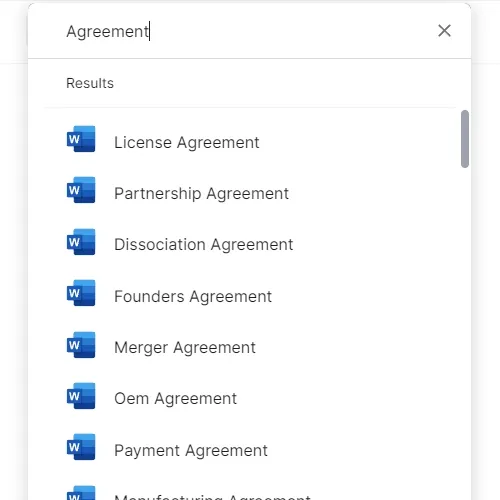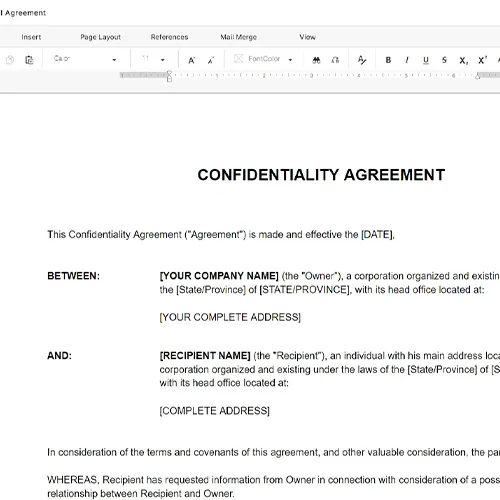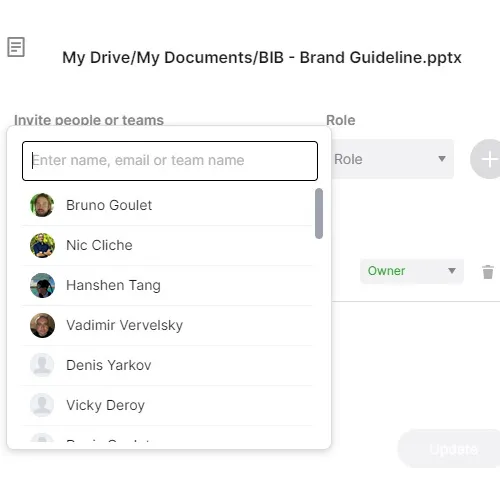Code of Ethics Template

Cultivating Integrity: Understanding a Code of Ethics
In an environment where trust and integrity form the backbone of business success, a Code of Ethics stands as a testament to a company's commitment to ethical principles. It's not just a document; it's a reflection of your business's core values and moral compass, guiding the behaviour of everyone from the boardroom to the front lines. Implementing a Code of Ethics is essential for fostering a culture of transparency, accountability, and respect, setting the standard for decision-making and interactions within and beyond the organization.
What is a Code of Ethics Template?
A Code of Ethics template is a foundational tool for businesses aiming to formalize their ethical stance and expectations regarding professional conduct. This document outlines the principles and values that govern the actions and decisions of your company and its employees, providing clear guidelines on integrity, fairness, respect, and responsibility. Tailoring this template to reflect your organization's unique ethos and context ensures that your Code of Ethics is relevant, actionable, and integral to your corporate identity.
Key Elements of a Code of Ethics
A comprehensive Code of Ethics should encompass:- Introduction and Purpose - Overview of the code's objectives and its importance to the company's mission and values.
- Core Values - Declaration of the fundamental values that underpin the company's culture and decision-making processes.
- Standards of Conduct - Specific guidelines on expected behaviours in various situations, including conflicts of interest, confidentiality, and compliance with laws.
- Responsibilities to Stakeholders - Outline of the company's commitments to employees, customers, partners, and the community.
- Enforcement and Reporting - Procedures for reporting ethical concerns or violations, and the mechanisms in place to investigate and address them.
- Disciplinary Actions - Description of the consequences for breaches of the code, reinforcing the seriousness of the commitment to ethics.
- Review and Updates - Commitment to regularly reviewing and updating the code to reflect changes in the company, industry, and legal landscape.
Related Documents for Crafting a Code of Ethics
Enhance your Code of Ethics with these related documents:
- Whistleblower Policy - Ensures that employees can report unethical behaviour without fear of retaliation.
- Conflicts of Interest Policy - Details how potential conflicts of interest are managed and disclosed.
- Employee Handbook - Incorporates the Code of Ethics into a broader document that outlines company policies and procedures.
- Business Ethics Guide - This guide outline the moral principles and standards of behaviour expected from individuals and entities within a business, guiding ethical decision-making and conduct in professional settings.
Why Use Business in a Box to Create a Code of Ethics?
Business in a Box is the premier choice for developing a robust Code of Ethics, offering:
- Expertly Designed Templates - Crafted with input from legal and industry experts to ensure your code is comprehensive and compliant.
- Ease of Customization - Modify the template to reflect your company's specific values, culture, and industry standards.
- Efficiency - Streamline the creation process, saving valuable time that can be better spent on nurturing your company's ethical culture.
- Comprehensive Support - Gain access to over 3,000 legal and business documents to support all aspects of your operations.
Utilizing Business in a Box for your Code of Ethics empowers you to establish a strong ethical foundation, promoting a culture of integrity that enhances your reputation, supports compliance, and contributes to long-term success.
Updated in April 2024
Reviewed on

Cultivating Integrity: Understanding a Code of Ethics
In an environment where trust and integrity form the backbone of business success, a Code of Ethics stands as a testament to a company's commitment to ethical principles. It's not just a document; it's a reflection of your business's core values and moral compass, guiding the behaviour of everyone from the boardroom to the front lines. Implementing a Code of Ethics is essential for fostering a culture of transparency, accountability, and respect, setting the standard for decision-making and interactions within and beyond the organization.
What is a Code of Ethics Template?
A Code of Ethics template is a foundational tool for businesses aiming to formalize their ethical stance and expectations regarding professional conduct. This document outlines the principles and values that govern the actions and decisions of your company and its employees, providing clear guidelines on integrity, fairness, respect, and responsibility. Tailoring this template to reflect your organization's unique ethos and context ensures that your Code of Ethics is relevant, actionable, and integral to your corporate identity.
Key Elements of a Code of Ethics
A comprehensive Code of Ethics should encompass:- Introduction and Purpose - Overview of the code's objectives and its importance to the company's mission and values.
- Core Values - Declaration of the fundamental values that underpin the company's culture and decision-making processes.
- Standards of Conduct - Specific guidelines on expected behaviours in various situations, including conflicts of interest, confidentiality, and compliance with laws.
- Responsibilities to Stakeholders - Outline of the company's commitments to employees, customers, partners, and the community.
- Enforcement and Reporting - Procedures for reporting ethical concerns or violations, and the mechanisms in place to investigate and address them.
- Disciplinary Actions - Description of the consequences for breaches of the code, reinforcing the seriousness of the commitment to ethics.
- Review and Updates - Commitment to regularly reviewing and updating the code to reflect changes in the company, industry, and legal landscape.
Related Documents for Crafting a Code of Ethics
Enhance your Code of Ethics with these related documents:
- Whistleblower Policy - Ensures that employees can report unethical behaviour without fear of retaliation.
- Conflicts of Interest Policy - Details how potential conflicts of interest are managed and disclosed.
- Employee Handbook - Incorporates the Code of Ethics into a broader document that outlines company policies and procedures.
- Business Ethics Guide - This guide outline the moral principles and standards of behaviour expected from individuals and entities within a business, guiding ethical decision-making and conduct in professional settings.
Why Use Business in a Box to Create a Code of Ethics?
Business in a Box is the premier choice for developing a robust Code of Ethics, offering:
- Expertly Designed Templates - Crafted with input from legal and industry experts to ensure your code is comprehensive and compliant.
- Ease of Customization - Modify the template to reflect your company's specific values, culture, and industry standards.
- Efficiency - Streamline the creation process, saving valuable time that can be better spent on nurturing your company's ethical culture.
- Comprehensive Support - Gain access to over 3,000 legal and business documents to support all aspects of your operations.
Utilizing Business in a Box for your Code of Ethics empowers you to establish a strong ethical foundation, promoting a culture of integrity that enhances your reputation, supports compliance, and contributes to long-term success.
Updated in April 2024
Easily Create Any Business Document You Need in Minutes.

Download or open template
Access over 3,000+ business and legal templates for any business task, project or initiative.

Edit and fill in the blanks
Customize your ready-made business document template and save it in the cloud.

Save, Share, Export, or Sign
Share your files and folders with your team. Create a space of seamless collaboration.


